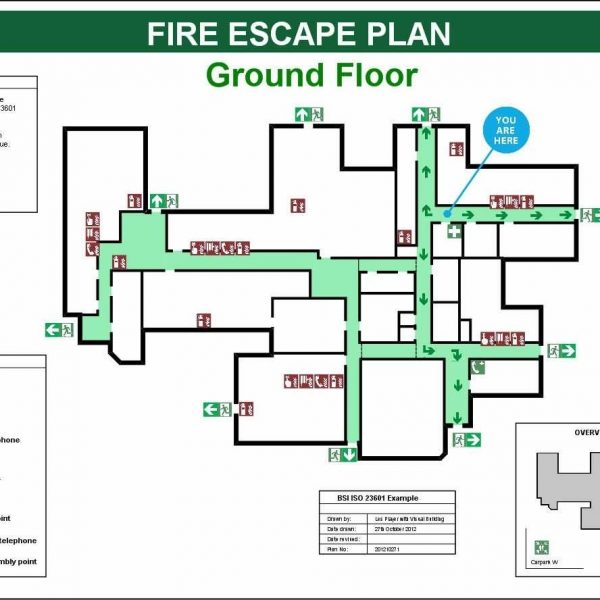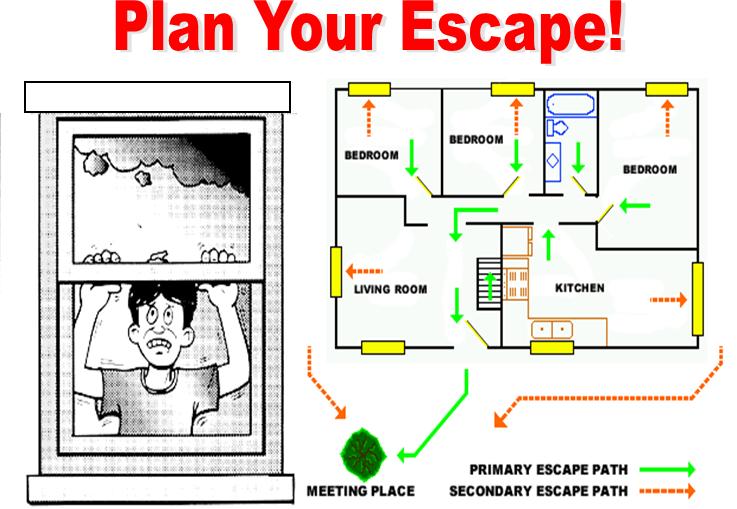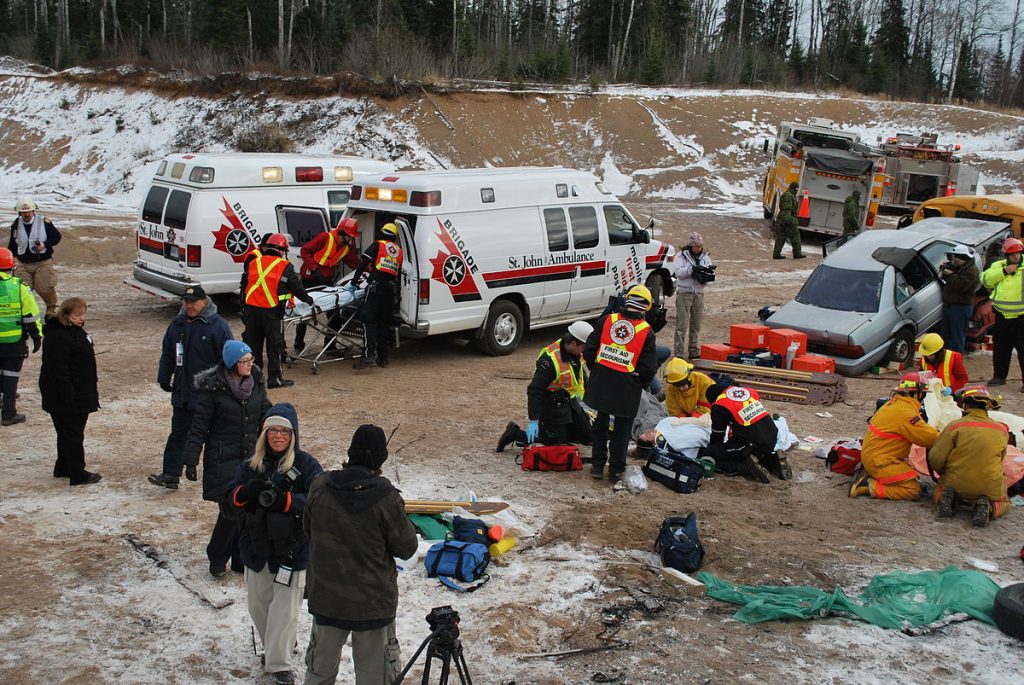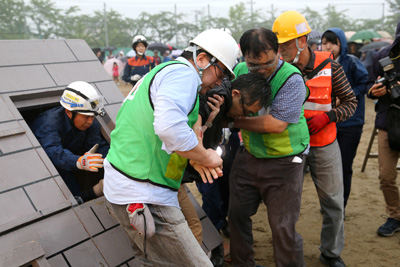Written by Guest Contributor on The Prepper Journal.
Editors Note: An article from Jeff Blaylock to The Prepper Journal. Good advice for everyone, not just college students. The overall theme is one familiar to most preppers, don’t panic and know what you are doing. As always, if you have information for Preppers that you would like to share then enter into the Prepper Writing Contest with a chance to win one of three Amazon Gift Cards with the top prize being a $300 card to purchase your own prepping supplies!
Emergency situations can happen anywhere to anyone. This is why people devote so much attention to planning to deal with them, look for ways to avoid them, and set in place rules and procedures to save themselves and others – to think consciously in case of such things.
In colleges, people talk and write about it. So, do not be surprised if you get an assignment to write an essay or research paper on the topic “How to act in an emergency?”. You may think that you know everything or you have more interesting things to do than writing about it and think, “That will be great if other people do my research paper or essay instead of me!”

That would be easier. But if you do some research on this topic and write about it yourself, you will remember all the info and become aware of how to act in emergencies.
What Do You Have to Know?


No matter where you are, you cannot be 100% sure that nothing will happen to you. You do not have to be scared constantly, just be situation aware. Know your surroundings, know your paths of entry and exit from any structure, note where standard safety equipment is stored – first aid kits, Hazmat kits, fire extinguishers, fire alarms and the like. In a college environment you will have a routine and it only takes a few conscious observations in the first weeks there to know generally where all these things are. The point is you simply have to be prepared for emergency situations by knowing your surroundings.
Let’s review how to act in these different situations and how to survive, to simply get yourself safe.
Stay Calm

Unfortunately, often risk is increased exponentially when panic is the first reaction. This is when people commit rash actions, which lead to injuries and even their death because they panic. You, like other students on campus, need to know what you will do next and what steps you will take. However, time to make a complete and through analysis of your situation in a real emergency is a luxury you simply do not have, a delay in a dangerous situation increases the threat that and could result in serious consequences. From an earthquake to fire or explosion to an active shooter, not panicking with be your first right step. Of course seek cover or escape immediately, but knowing your are running from danger as opposed to towards it in such situations take a very quick assessment of the situation. You will be surprised at yourself if you have thought this through while becoming familiar with you new surroundings.
Try to Leave a Dangerous Place


It is important to remember that if you are not a specialist (a rescuer or a doctor), you do not need to try to help professionals until the danger has passed. This only aggravates the situation, and you can get hurt. Be a friend to yourself and trust those people who know what they are doing and try to get out of the building as fast as possible.
In the Case of Natural or Man-Made Emergencies, Never Use an Elevator
In such situations, electricity, as a rule, is lost. Imagine yourself in two situations:
- Electricity is out when you only got to the elevator, you will not even be able to get inside of it
- Electricity is lost when you are already inside the elevator. This option is worse, because you get stuck inside of it, and what happens to it happens to you. In the best case scenario, you will have to wait until everything is over and electricity is back on. In the worst case scenario, the consequences can be tragic.
Avoid elevators in an emergency situation!
Do Not Take Anything Superfluous

Keep documents and valuables in one place. This will be necessary in case of an emergency because this way you can immediately collect them all and leave the building, assuming you are there when the emergency occurs. If you are not do NOT make grabbing them your plan intil the emergency is over and it is safe. Of course, you can count on the college having a safety policy and procedures in place, know it and follow it. If you do something that disturbs the process of your being rescued, the consequences can be tragic. There are few things in life that are not replaceable, especially in a dorm room or classroom, other than yourself.
Do Not Overload Communication Lines
Try to use the phone only in case of an emergency, and only if you are going to call emergency services. In a college environment know that if the emergency is dire enough then the emergency personnel are already being overloaded with calls. When you are safe call one person you trust to tell them you are safe and task that person with getting the word out, by other calls, texting, social media, whatever.
Do Not Provide First Aid If You Are Not Trained in First Aid
It is not recommended to provide first aid to the wounded/victims if you have not received special training and are not sure of your strengths and knowledge. The site of blood, broken limbs, missing limbs and the bodies of the dead are not something every person can deal with and you don’t want to interdict those who can. The main thing in this situation is to use the simple rule – “Do No Harm.”
Provide First Aid If You Are Both Trained and Prepared
If you have received special training and are sure of your knowledge and your strength, then you can and should render aid to an injured person when the situation had de-escalated and you are no longer in danger of still being injured. For that, besides training, knowledge, and strength, you also must have the presence of mind, calmness and confidence in what you are doing. Fear and hesitancy are not what is called for in this situation.
When It Is Fire, Know What to Do

If you were sitting, listening to lessons and suddenly a fire breaks out, you have not panic and get out of the building as quickly as you can. However, if escape is not an option (high upper floor and fire below, no fire escape, your hallway burning) you again have to NOT panic. If there is a source of water in the room (sink, toilet, bottled water or energy drinks) wet some cloths (blankets, drapes, your coats or other removable garment) and seal the door with them to try and control the toxic gases from a fire. Never forget that your bladder, everyone’s bladder is an emergency source of liquid in this case. A wet cloth, held to your nose, will make breathing easier, unless it is from that last-resort liquid source. Signal for help as best you can through window, pounding on the door, dialing 911, blowing a whistle (something everyone should have on their key chain) and, of course, yelling.
Try to Calm Down Others
If you managed to calm yourself down, try to do that to others. It happens, when people cannot handle their fear and start crying, yelling and panicing, they are only making the situation worse for everyone else. Try to make them calm. If you can maintain, calm your own first reactions, it is worth trying with them too.
When It Is an Earthquake…

If you were on campus and started feeling an earthquake, do not panic, seek cover. Extinguish any open flames and stay away from overhanging balconies, cornices, parapets, beware of dangling wires.
During the Earthquake, Find a Protected Safe
Under sturdy furniture is option number one, against a load-bearing wall is option number two. If your eventual escape route has a door, prop it open with something as any shaking of the structure can cause a door to become inoperable due to the structural damage caused by the tremor. Hiding under furniture will offer some protection from falling objects and debris. Stay away from windows and heavy furniture that may fall, like bookshelves.
One Unnatural Disaster – Confronted with Someone Who Wants to Commit Suicide

It is an emergency and instantaneously you are in the middle of it. And sadly this is something teenagers face more as a segment of the population and colleges are full of teenagers, few of whom handle stress well in the first place, and some of whom who don’t, period, and this is a problem. There are the standard steps – How to help a friend who is suicidal, and it is worth knowing as you may be faced with such a situation. Again, try not to panic and try and remain calm, speak is as monotone a voice as possible, not labored, but not displaying any panic on your side. Try to calm the person down by words, try to draw out the conversation and get them to talk. Do not approach the person especially if they have already put themselves in a dangerous position. If you have a cell phone calmly dial 911 with the phone at your side and leave it there. Emergency services can hear your conversation and they can find you, especially on a college campus. Stall for emergency service to arrive and let them do their job.
Only in the movies do friends talk their friends down and they are cured. This is a CRY for Help, so do the right thing and get them help.
Do Not Set Yourself Up on the Bad
Please don’t get too wound up in the what if’s. Think about preparing for them, knowing not to panic, knowing to react quickly without over reacting and go on loving life and being confident in your moves. Remember, you are what you think!
All these situations can happen to students on campus, to kids in schools, to adults at home, to any person anywhere. We, the people, are considered the smartest of beings so lets live up to it.
Follow The Prepper Journal on Facebook!
The post Things College Students Should Know in Emergency Situations appeared first on The Prepper Journal.
from The Prepper Journal
Don't forget to visit the store and pick up some gear at The COR Outfitters. How prepared are you for emergencies?
#SurvivalFirestarter #SurvivalBugOutBackpack #PrepperSurvivalPack #SHTFGear #SHTFBag

No comments:
Post a Comment